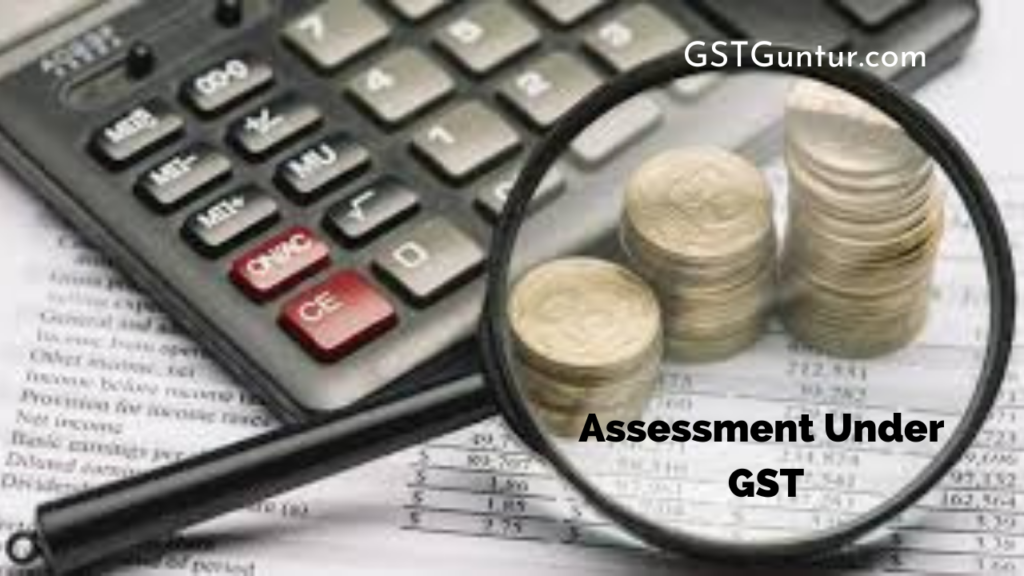Assessment under GST: The assessment is the computation of the taxpayer’s tax due under GST law. It is the method of figuring how much tax a person should essentially pay each month.
- What are the different varieties of assessments?
- What is Self Assessment?
- What is Provisional Assessment?
- What is Scrutiny Assessment?
- What is the Best Judgment Assessment?
- What is Summary Assessment?
What are the Different Varieties of Assessments?
- Self Assessment – Assessed under Section 59
- Provisional Assessment – Applies to Section 60
- Scrutiny Assessment – Comes under Section 61
- Best Judgment Assessment – Carried out by tax authorities
- Assessment of non-filers of Returns – Applies to Section 62
- Assessment of Unregistered Persons – Falls under Section 63
- Summary Assessment – Comes under Section 64
Note: The taxpayer performs only self-assessment. Tax administrators levy all other assessments.
What is Self Assessment?
Every registered taxable individual must carefully evaluate his or her taxes and submit a return for each taxable period. This implies that GST, like Excise, VAT, and Service Tax under the existing taxation framework, will support and encourage self-assessment.
Following self-assessment, the individual is obligated to pay tax according to this assessment as stipulated in section 39.
What is Provisional Assessment?
A taxpayer may be subject to provisional assessment if he or she is barely able to correctly deduce the value of goods or services, or both, or the corresponding tax rate. This also specifies the two primary parameters under which this assessment is carried out:
- If the taxpayer can barely evaluate value attributable to complications in computing transaction value or ambiguity about whether particular items should be incorporated or otherwise.
- If the taxpayer cannot establish the amount of tax owing to complexities in sorting goods and services or ascertaining whether or not any notification is appropriate.
What are the Steps in the Provisional Assessment Process?
- The taxpayer must submit a formal request to the GST officer for provisional assessments.
- After reviewing the application, the officer will issue an order within 90 days after obtaining such a formal request. This order effectively permits him to pay tax on a provisional basis or at a GST rate or value that he establishes.
- The taxpayer who makes a provisional payment must simply issue a special bond with security committing to pay the difference between the provisionally assessed tax and the final assessed tax.
- The GST officer will release the final assessment within six months from the provisional payment order.
- Final assessments will immediately supplement provisional assessments.
What is Scrutiny Assessment?
The appropriate official can closely scrutinize the return to help confirm its factual accuracy. It is a purely voluntary pre-adjudication process.
In other simple words, the officer is not required to scrutinize the return. Returns scrutiny is not a legally enforceable or judicial procedure; thus, no order may be imposed.
The officer will request reasonable explanations for any inconsistencies and contradictions identified.
The person must provide an immediate statement within 15 days after receiving the warning.
The registered person may accept the discrepancies as clearly indicated in the notification and pay the taxes, interest, and any additional amount owed and notify the appropriate authorities.
What is the Best Judgment Assessment?
Under this assessment, the Assessing Officer is expected to carefully consider a taxpayer’s total income or less to the best of his judgment in the following situations.
Assessment of non-filers of Returns
If a taxpayer fails to file returns despite obtaining a warning notification under section 46, a GST officer is legally permitted to assess section 62.
In this particular scenario, the GST officer assesses the taxpayer’s tax burden to the best of his judgment, bearing all necessary information.
Assessment of Unregistered Persons
If a taxpayer fails to acquire the necessary GST registration or whose registration has been cancelled at the last minute under section 29(2), even if he is legally obligated to be registered and pay tax, the GST officer may process his or her tax due to the best of his or her judgment under section 63.
This must be done for the corresponding period in which the tax is paid.
What is Summary Assessment?
Summary GST assessment typically demonstrates a high priority assessment. When there is likely cause to suspect that there will be a potential loss of tax income, it is generally performed on an immediate basis.
The officer may also give an assessment order if he has proven that the delay in assessment is adversely affecting the revenue’s interest.
